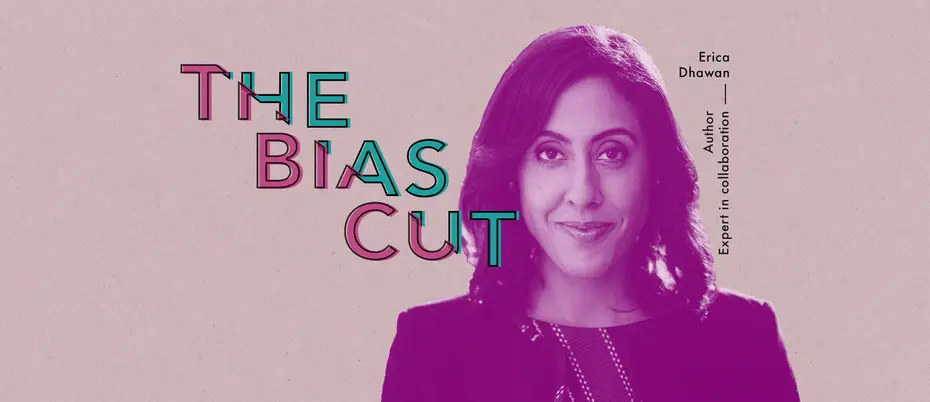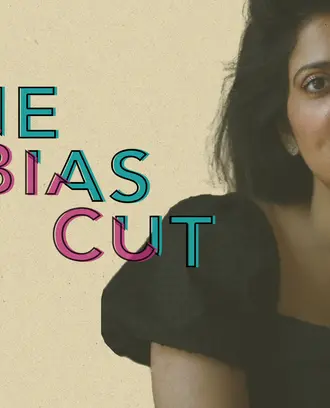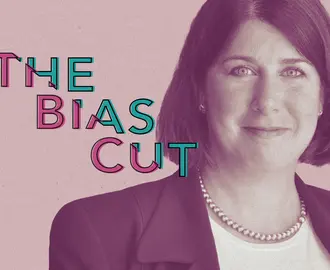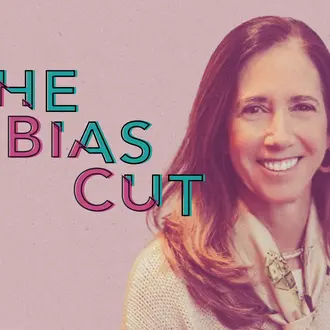The Bias Cut
This collaboration expert helps women find their superpower
“I thought I had to do it all, but in fact, I only had to do what truly mattered and made a difference.”
A 2020 women’s leadership study from LeanIn.org and McKinsey & Co. found that American women held less than 40% of corporate management positions, and women continue to fight underrepresentation when it comes to board positions and CEO roles. They also face gender bias, harassment, and opposition to their management styles.
Here’s how one MIT Sloan alumna has pushed back on those statistics and used what she’s learned along the way to help those behind her.
Erica Dhawan, MBA ’12, expert in collaboration, communication, and teamwork; author of Digital Body Language
In what ways is your professional life as a woman in the workplace different from how you imagined it would be when you started your career?
As a child of first-generation Indian immigrants, my goal was always to check the boxes of success. I got shiny degrees from Ivy Leagues and marched into a glamorous job on Wall Street. Like every other woman in finance, I worked incredibly hard. In the 2008 recession, I witnessed firsthand the disillusionment, confusion, and burnout that can happen in toxic business cultures. I saw how many women’s dreams and passions were being squashed every day when we went into work. After the financial collapse, I switched gears entirely to try to find more meaning in my work and better understand how teams in organizations could leverage passion, purpose, and the resources available to us to get big things done. This led me to develop original research and write two books. Today, I advise CEOs and leadership teams to drive cultures of collaboration and innovation. My consulting, keynotes, and books are about how we all can leverage 21st century collaboration potential available to us, and work smarter — not harder — in an over-connected world.
Who was an ally or mentor for you as you’ve navigated your career? What made that person stand out, and how specifically did they help you get to the next level of your professional development?
When I think of a mentor that stood out to me, I immediately think of Accenture’s change management and inclusion leader Christie Smith. Christie recognized the power of my ideas around connectional intelligence, and became an advocate for me with executives when I wasn’t in the room. She always gave me opportunities to grow and empowered me to take risks when it came to building my career. Real allies don’t necessarily just give advice; they help you find your superpower and amplify your work with others.
Can you give an example of a time you’ve experienced or witnessed gender bias? How did it affect you professionally? What impact did it have on your job?
After learning I was seven months pregnant, one of my clients asked to postpone a webinar with me until after I gave birth. As a business owner with no maternity leave, I had been excited to do the virtual session. The incident made me reluctant to tell my other clients, and I tried to conceal my pregnancy as long as I could. While the majority of responses I received were supportive and kind, gender bias is real, and I continue to be careful in very male-dominated industries. In many ways, I think the last year of working from home has shown that women can do anything from anywhere. Whether it’s a remote, in-person, or hybrid workplace, women can make things happen and be successful working mothers, thriving at childcare and advancing their professional careers at the same time.
Certain industries are as male-dominated as ever. Where do you see progress in your own professional experience and how can we scale that throughout your industry?
As a keynote speaker for more than 10 years, I’ve been excited to see more minority and female keynote speakers entering the industry. While there has been significant progress made as a result of the #MeToo movement and other social justice advancements, there’s still a long way to go and more efforts to make. Similar to the way S&P 500 companies now have at least one woman on their boards, I’ve seen a number of organizations make conscious efforts to book a diversity of speakers for their events and leadership conferences. This is not just a quota to meet, but a thoughtful way for companies to broaden and diversify their networks and opportunities.
How do you support women coming up behind you?
I host internships and career conversations for women to develop new skills and take on creative challenges. I aim to be not only a mentor, but a sponsor; I advocate for women when they’re in the room and more importantly, when they’re not and don’t have the opportunity to speak up for themselves. I look to support other aspiring women in business by giving them real opportunities to learn, network, and build a successful career.
What is the most difficult lesson you’ve learned in your professional life? In what unexpected ways did you grow from it?
I was at the peak of my career, traveling at least two times a week and presenting over 50 keynotes in countries around the world. I had a bestselling book and a vibrant consulting company that was finding effective ways for leaders and teams to innovate faster and further together. Potential clients were constantly reaching out about speaking gigs, and I felt pressured to accept every job offered. But one of the most valuable lessons I had to learn in my 20s and 30s was that it was okay to say “no” if an opportunity didn’t feel right. I thought I had to do it all, but in fact, I only had to do what truly mattered and made a difference. And I became more successful because I started to only say “yes” to the right things. There will be plenty of opportunities that will come along in today’s world; when you ask yourself if it really matters, it will help you be more mindful of your choices.




